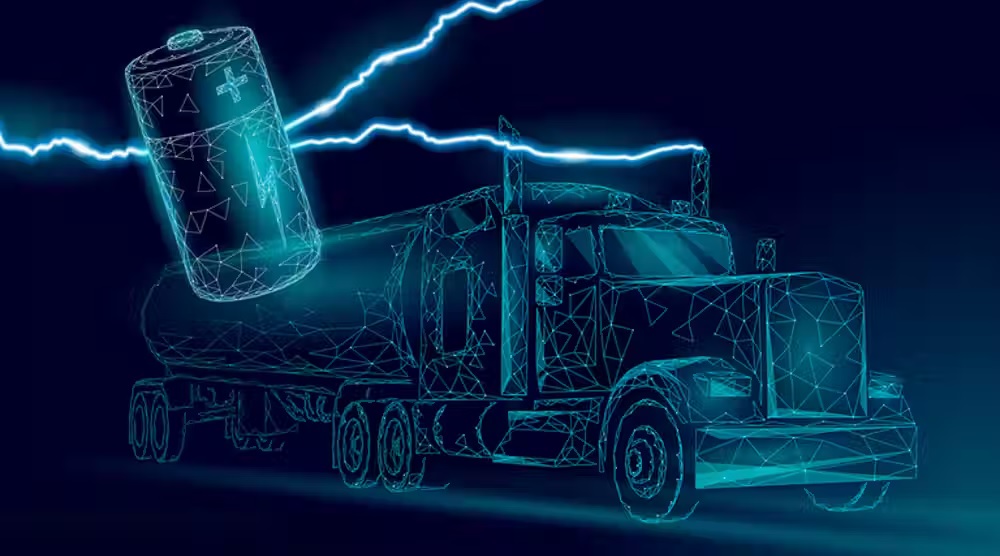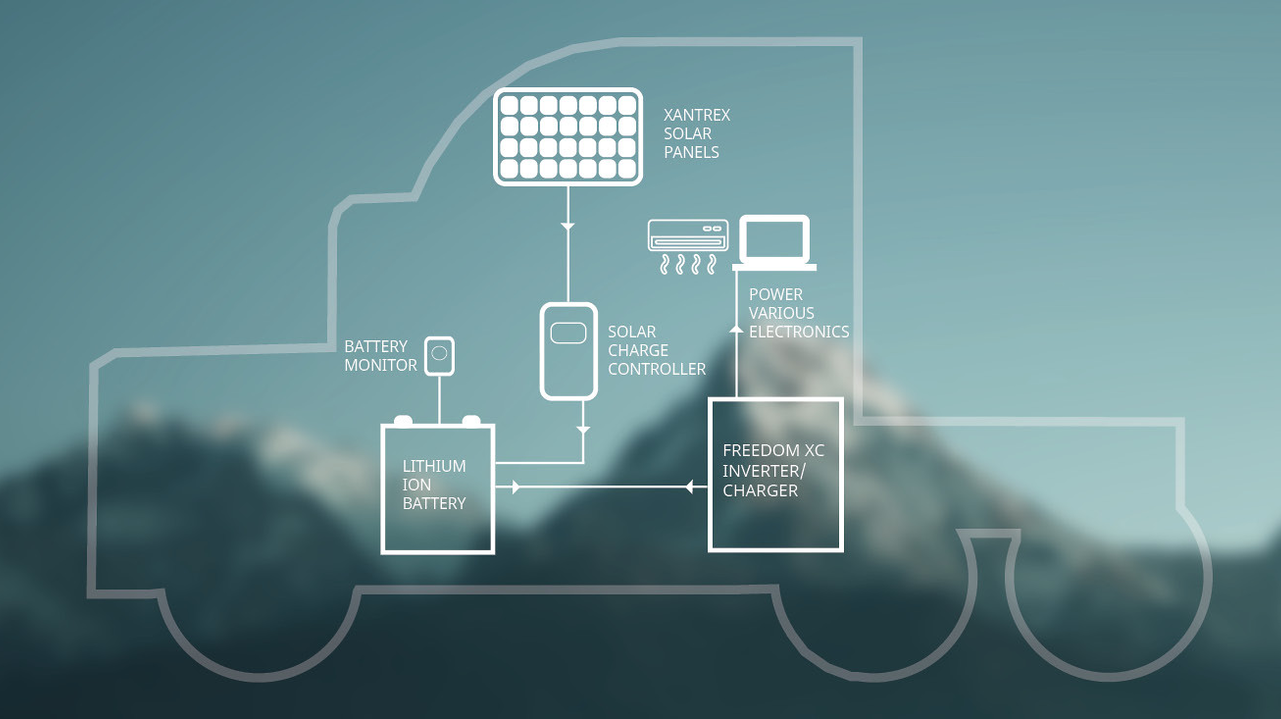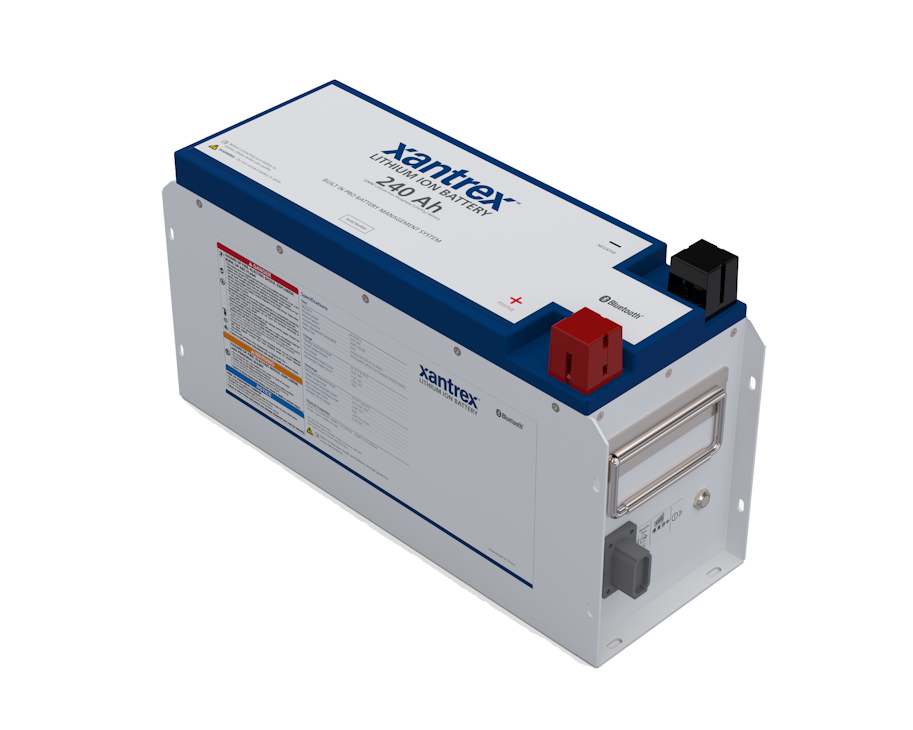The acceleration of commercial vehicle electrification has brought with it issues and considerations fleets and technicians must be aware of, particularly in relation to lithium-ion batteries.
With the growth of electric vehicles comes other types of battery issues and considerations as well, in particular related to lithium-ion batteries. Those technologies, related Jimmy Fielding, sales applications engineer at Mission Critical Electronics (MCE), offer benefits, including that they can be completely discharged without damage.
For example, Fielding explained further, if you have a 600-amp hour lithium-ion battery, you have 600-amp hours of usable power. By contrast, a typical traditional battery bank on a commercial vehicle has a 400-amp-hour capacity, which only gives you 200-amp hours of usable power. Making that even less effective, most OEMs only allow you to discharge the batteries 30%, so in that case you’re hardly getting any usable battery power at all.
See also: How to prolong and maintain modern CV batteries
You might assume that more capacity means more bulk and weight, Fielding added, but the opposite is true. “As the world’s lightest metal, lithium boasts a huge weight advantage,” he said. “Lithium-ion batteries are 60% to 80% lighter than their lead counterparts. A typical Group 31 battery weighs about 75 lb. while a similar lithium-ion battery only weighs 28 lb.”
Designed to leverage the performance of advanced lithium-ion batteries, Xantrex’s Freedom eGen solution can supply up to 6,000 charge-discharge cycles compared to 400 to 600 discharge cycles from traditional lead acid or AGM batteries. Regulated by the built-in Xantrex Intelligent Battery Management System (BMS), Freedom eGen supports charging from either a second alternator or a shore power connection. The system’s batteries also are equipped with a heating pad enabling operation in colder climates.
See also: Latest developments in electric APUs
Freedom eGEN delivers AC power through a Freedom XC Pro inverter/charger available in 2000W/100A and 3000W/150A models. This inverter’s true sine wave power is also designed to help ensure proper functioning of surge-sensitive electronics and other devices.
Fleets also can configure the XC Pro, which has built-in communication capability, to different voltage settings and set points to ensure engine starting via Bluetooth app. The inverter can also be set to better match the type of battery used. If it’s connected to the starting batteries, for example, the XC Pro can set the voltage higher to ensure enough power. If it’s connected to deep-cycle or lithium-ion batteries, it can be set lower for more power over a longer period of time.
This type of flexibility will be crucial as EVs with various power needs hit the market.
As more EV models are added to fleets, Bania noted, it is also important to remember that every EV has a 12V support battery. “In many cases, that battery is a critical safety component for helping the electric vehicle operate in the event of a high-voltage battery failure,” he said. “That battery should be maintained and serviced in the same manner as recommended for regular combustion engines.”
With the adoption of lithium-ion battery technology in the commercial vehicle market, there will be challenges for fleets and technicians, Rambeaux related. “There is already a lack of good diagnostic ability so that will be a huge concern as we move to voltages that are lethal,” he stated. “New test equipment and safety procedures will have to be implemented and even designed to work on EV systems.”
Battery manufacturers are already focused on near-term solutions that increase the usable energy in commercial vehicle applications and longer-term ideas that could come from developing technologies.
“As we continue down the road of accelerated advancements, the focus on maximizing current battery technology while being engaged in a roadmap toward new technologies will benefit fleets in planning for success in the midst of the current energy revolution,” Cordray concluded.
By Seth Skydel
Source: https://www.fleetmaintenance.com/







